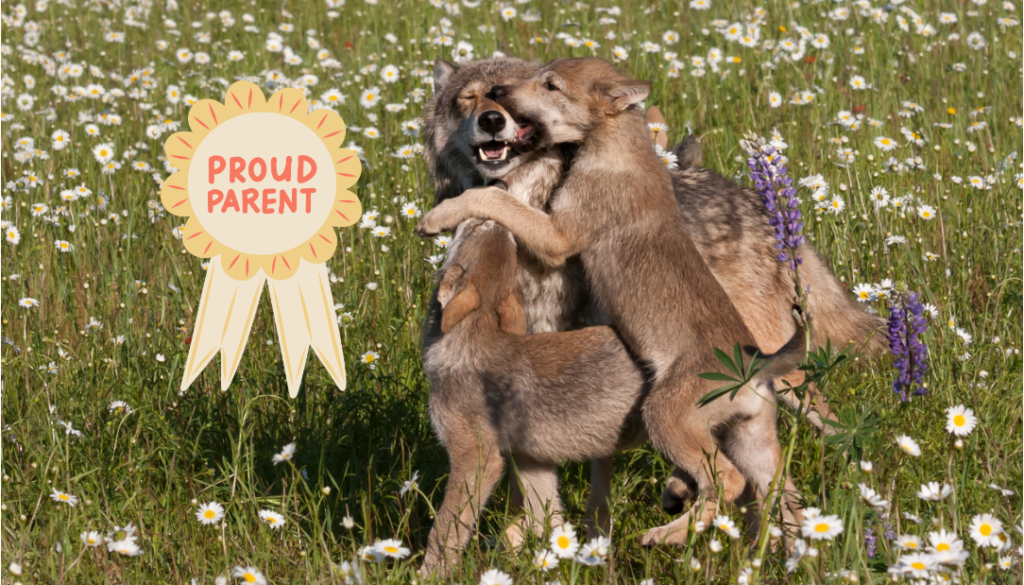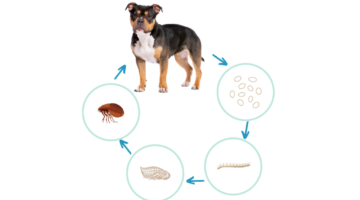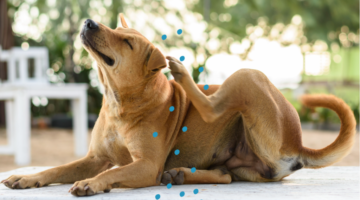Alpha Wolf Gone Wrong
The Alpha Wolf Theory was inspired by observing wolf behaviour, however, it was developed from the perspective of the human (who has been influenced by society) and not from the wolf’s point of view. The theory proposes a structured social hierarchy within wolf packs, where an “alpha wolf” assumes dominance through aggressive displays and physical control. This theory gained prominence primarily through research (Expression Studies on Wolves) conducted by Rudolph Schenkel in 1947, who studied displaced, unrelated wolves living in a zoo. It’s worth noting that to truly understand the wolf, the research should have been done in their natural habitat. And, to add injury to the existing study, in the mid-40s, zoos lacked standards of humanity, and mental health was not a concern, which would have exacerbated the dysregulated behaviour within these wolves.
Schenkel’s findings suggested that the confrontational behaviours exhibited by captive wolves were a means of establishing authority and maintaining order within the pack. Over time, this idea found its way into discussions about dog behaviour and training methodologies, which in turn popularized the term ‘Top Dog’ or ‘Alpha Dog’. This was used to determine the hierarchy of a pack and the wolf that would be the ever-present and popular title, ‘Pack Leader’.
However, as our understanding of wolf behaviour and social dynamics deepened, our perspective on the Alpha Wolf theory evolved. A new researcher in the 70s named David Mech continued to pursue and popularize the Alpha Wolf concept. Schenkel’s research greatly influenced his original work; however, as he reassessed his own research, he later acknowledged the shortcomings of his earlier conclusions. He recognized that in their natural habitat, wolf packs operate more as close-knit families, with parents nurturing and caring for their offspring.
Studies of dog behaviour in non-captive settings have also provided further insight into the complexities of their social interactions. Observations of free range dog populations and dogs in communal environments like neighbourhoods have revealed that although their social structures are complex, they do not use aggression to maintain a hierarchical model. Dogs in these settings often demonstrate more flexible and cooperative behaviours, emphasizing collaborative relationships over dominance, especially when referring to their young.
Despite this information being available, the Alpha Wolf Theory significantly influenced various aspects of dog training and has shaped many people’s overall perception of dogs. It has also contributed to training methods that relied on coercion and asserting dominance. Thankfully, a growing number of dog trainers and experts advocate for gentler and more compassionate approaches to training. They promote techniques that build trust, collaboration, and positive reinforcement between humans and dogs. But if your vantage point comes from a place where dogs must be obedient to be good, it won’t help you validate your dog’s inner self, not in the true sense of inner freedom anyway.
Controlling our dogs and children to be who and what we want them to be is not for their betterment but rather for regulating our own dysfunction. This compels me to ask: could our dysregulated selves look to control outcomes and be the ‘alpha dog’ because it helps us feel empowered? Could this partly be the driving force behind our fascination with dogs? Do we like the idea that we get to dictate the outcome and project our ideas to our dogs without resistance, and in return, our dogs conform and provide us with love and devotion? These are harsh questions, I know, but they must be asked. For myself, it was absolutely the case with my dogs. I spent many years projecting my needs onto them and was hell-bent on getting them to submit and fulfill my desires. It took me years to get here, where I see dogs as equal. And now, with dogs having no voice and no rights, it is my self-imposed duty to speak on their behalf.
To learn more, check out my book Unleash. There. I share insights and ways to overcome our pre-existing beliefs about dogs and encourage self awareness to elevate our relationship with them and ourselves.




